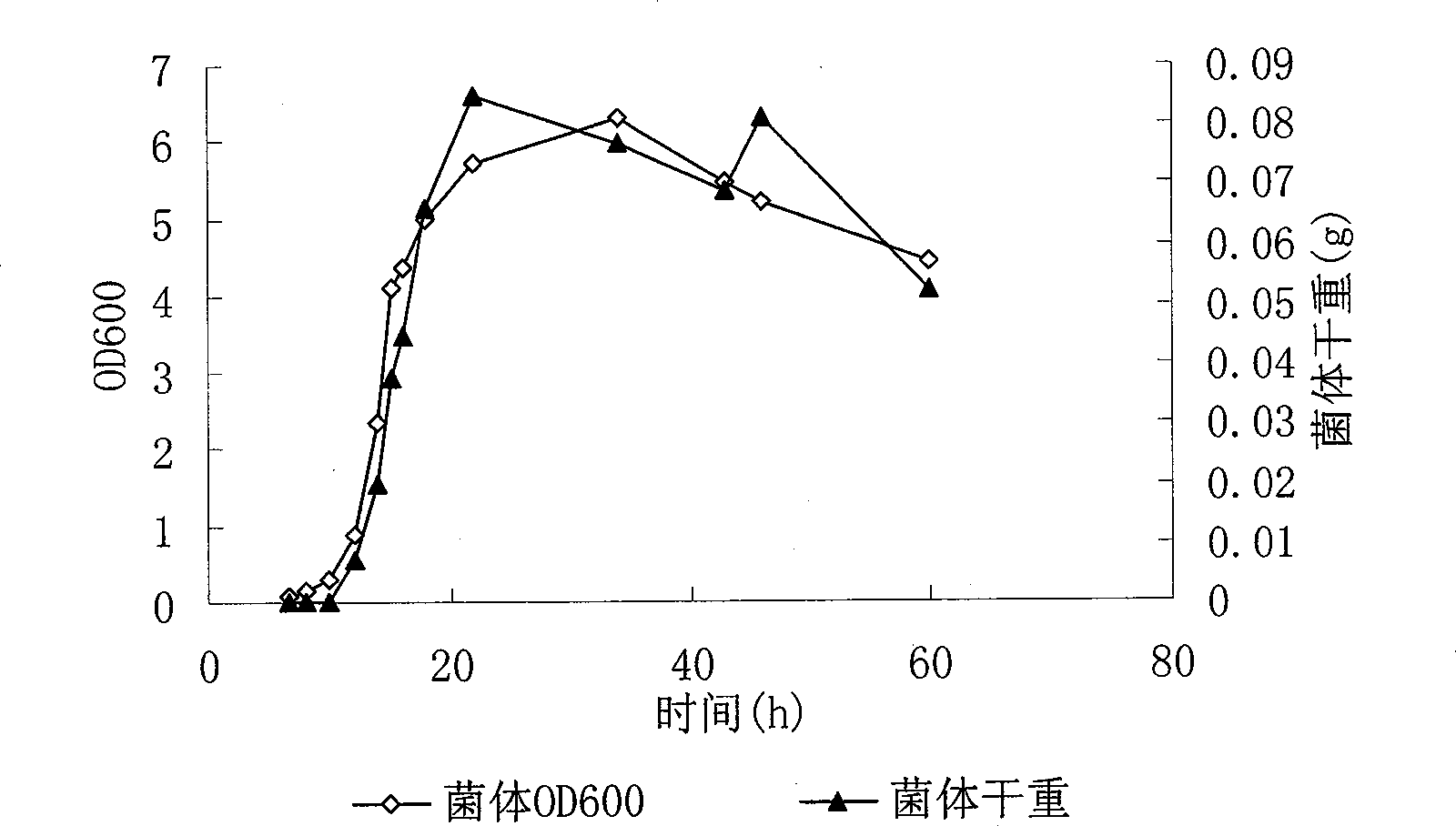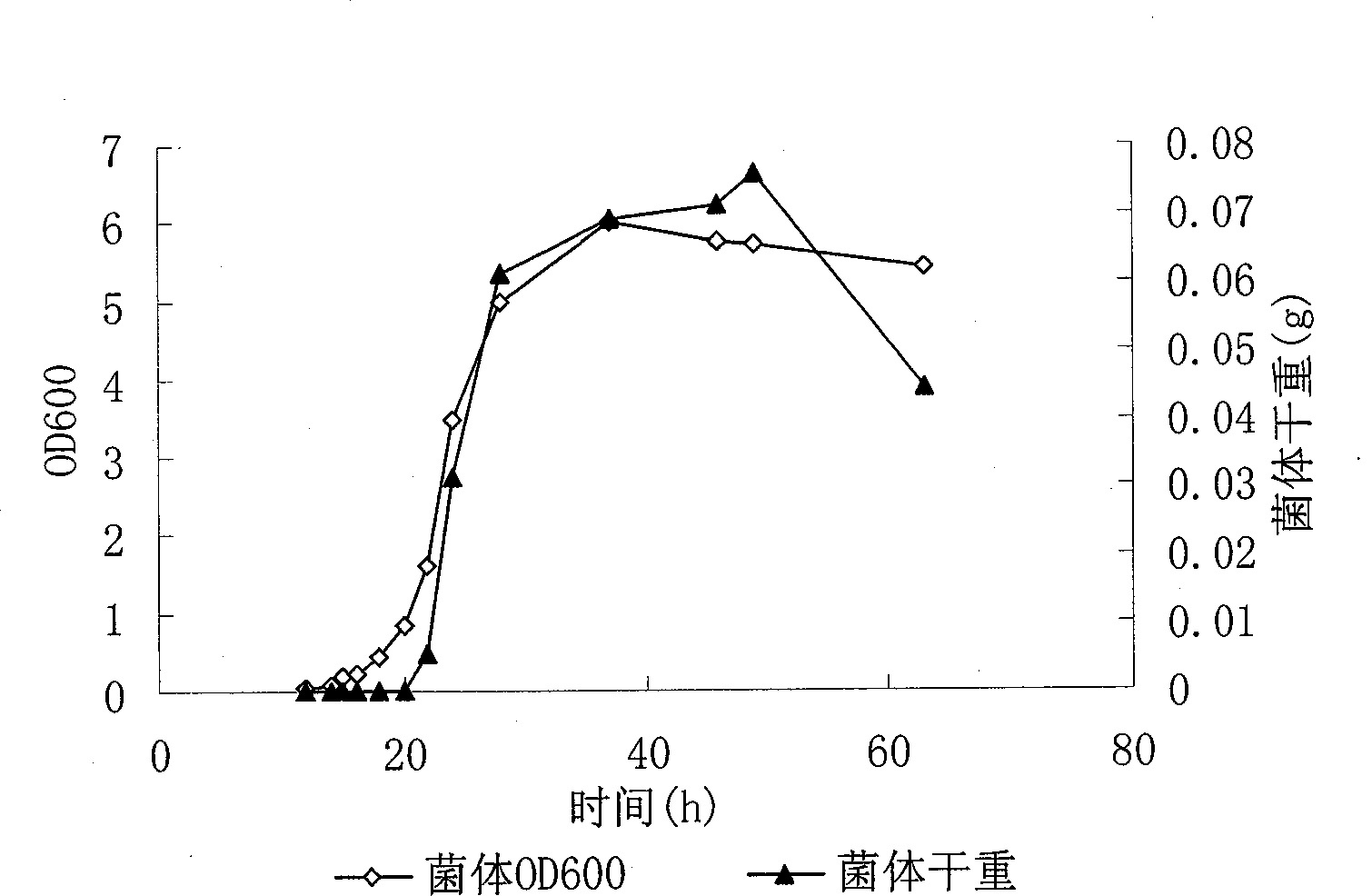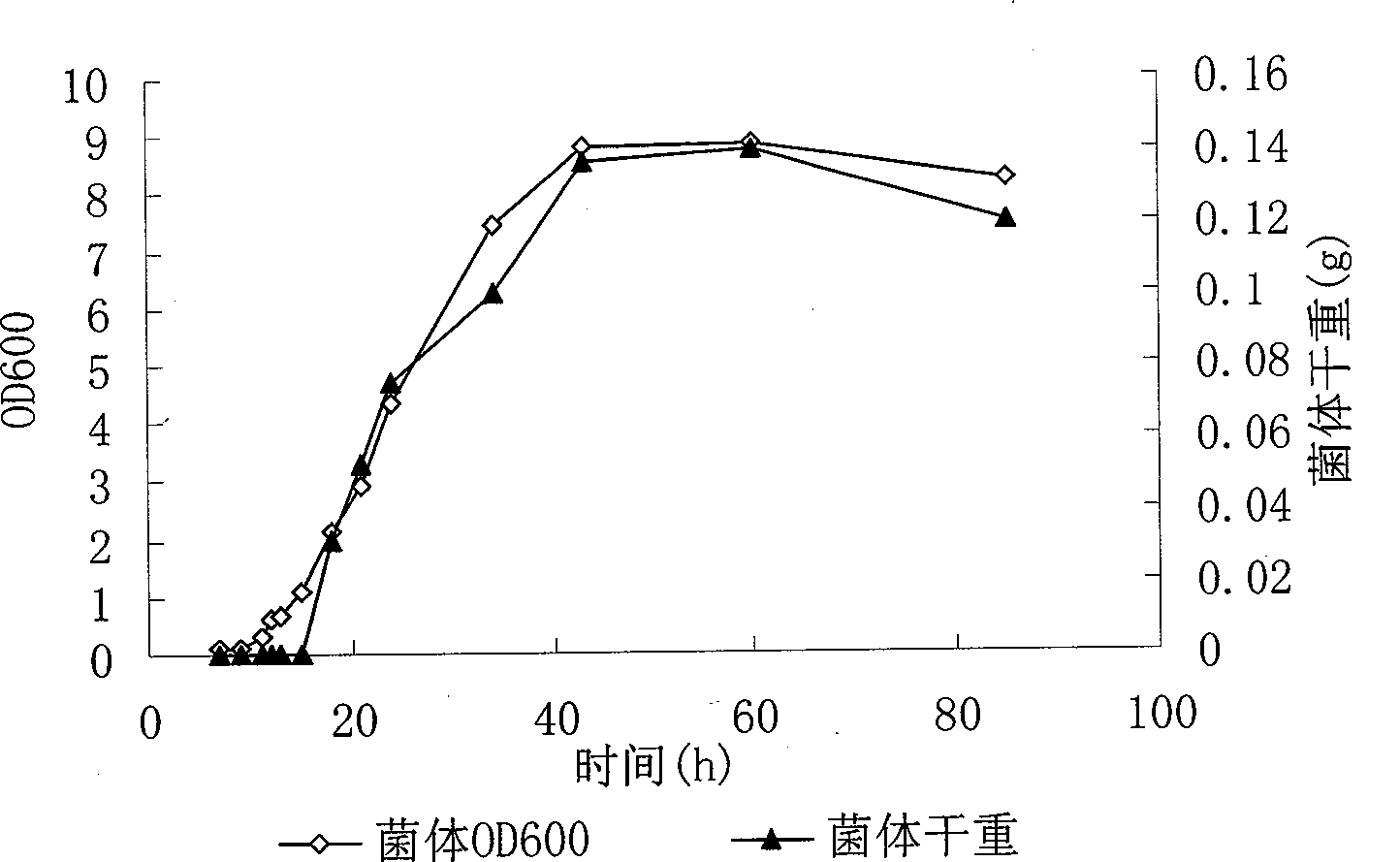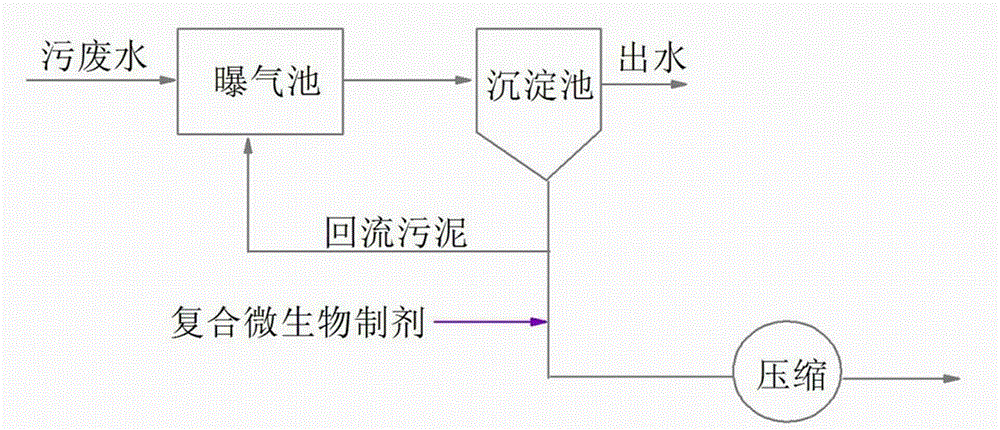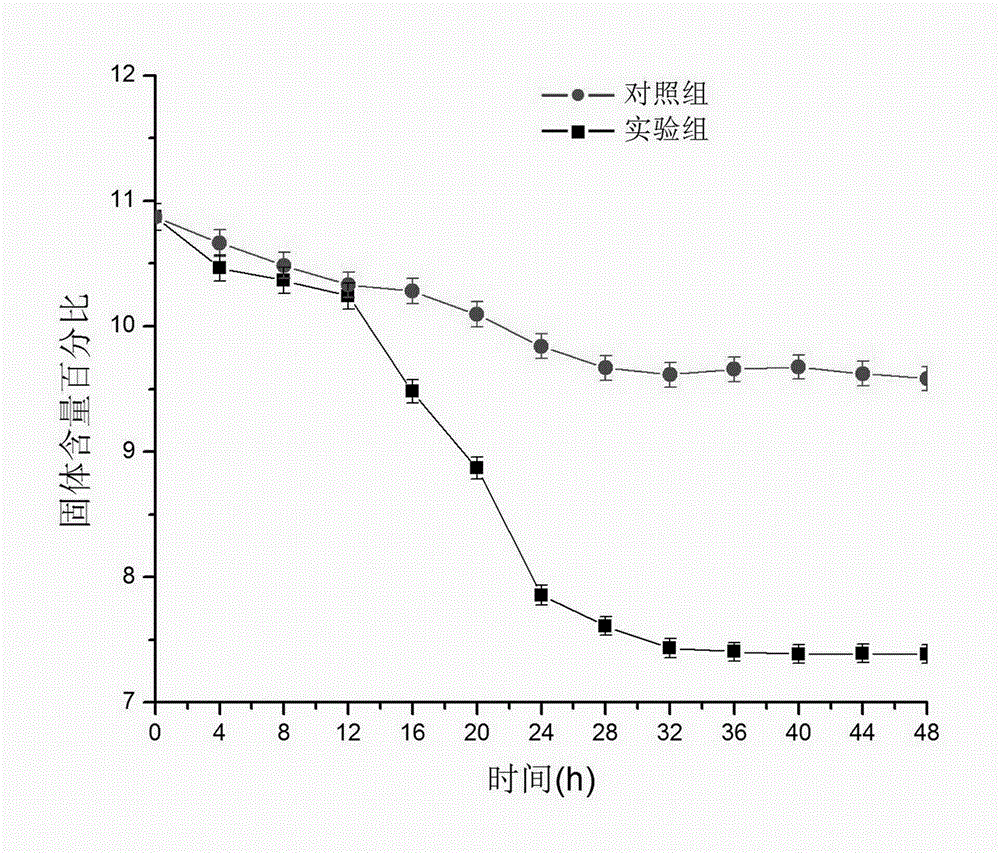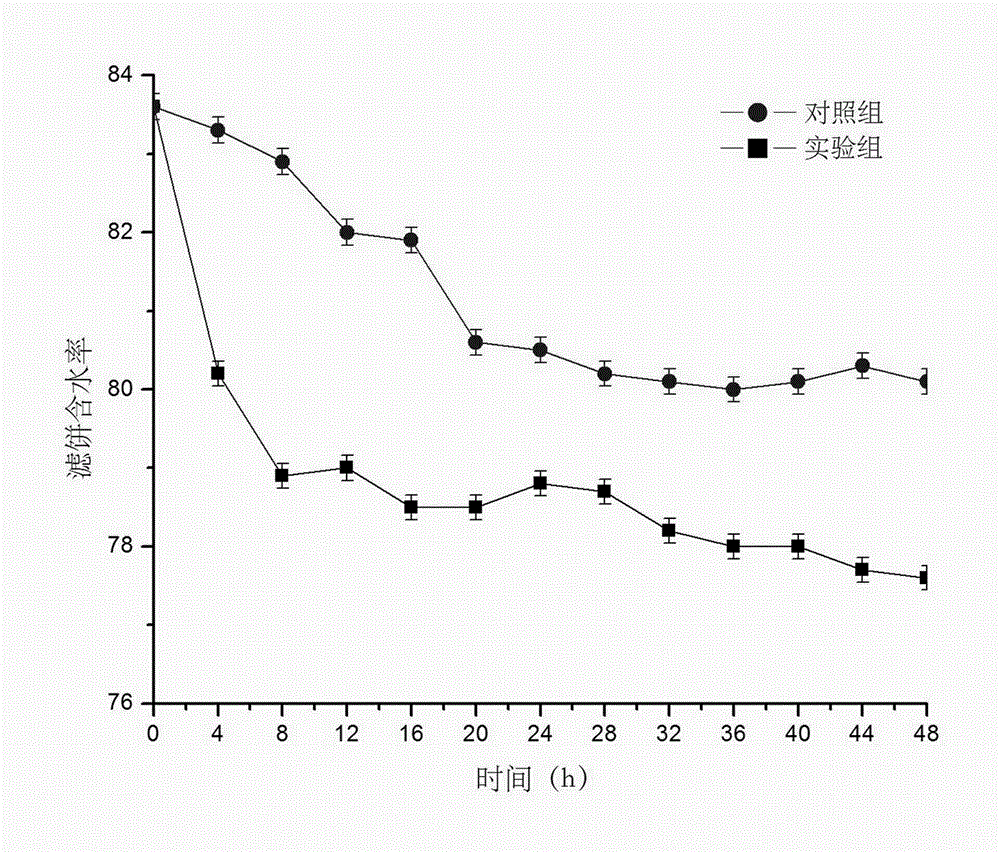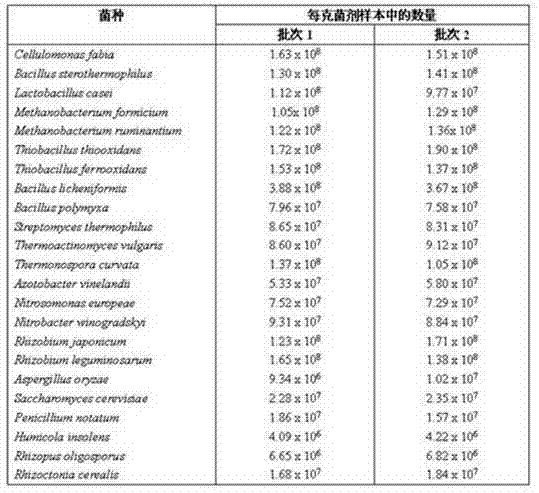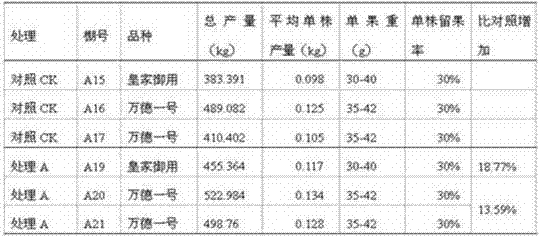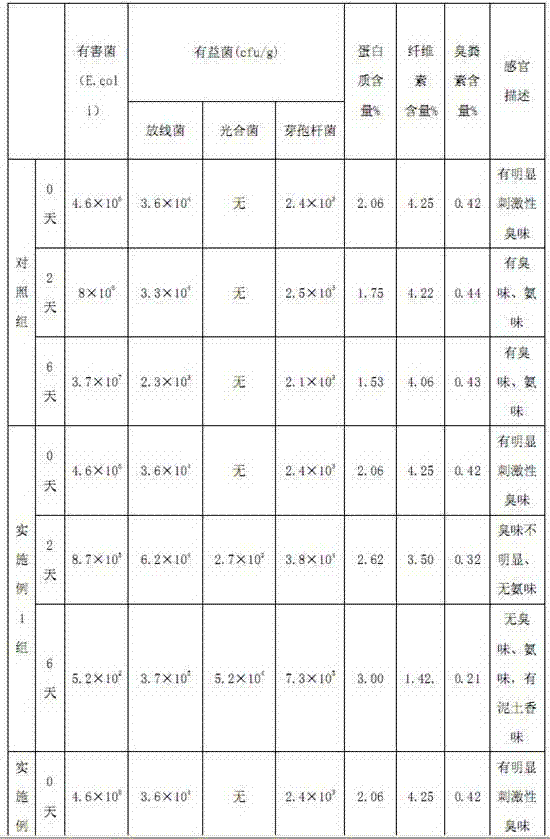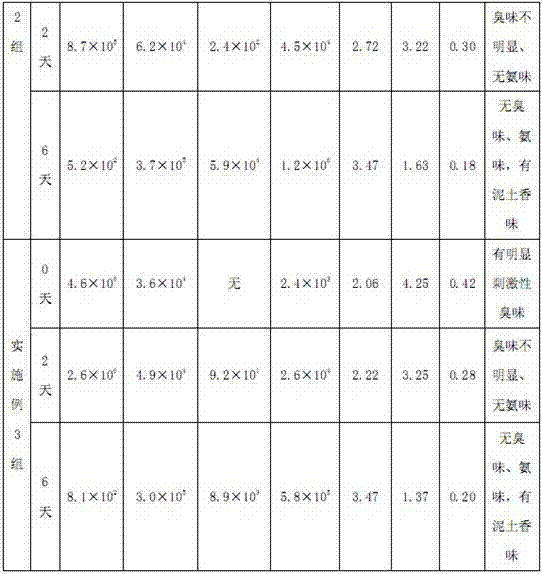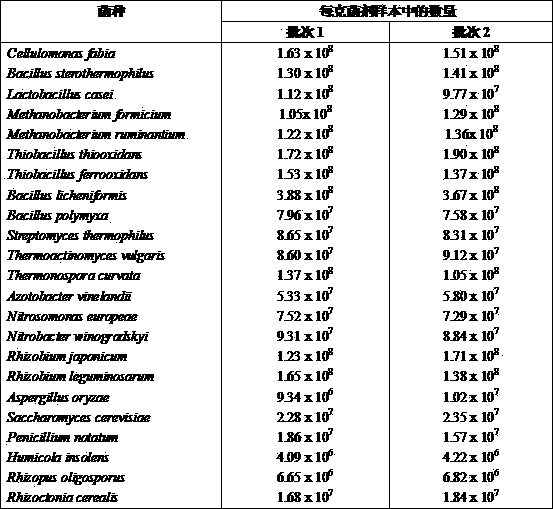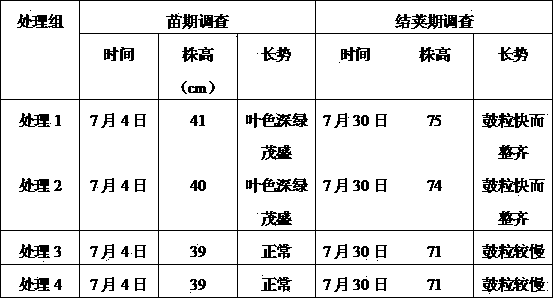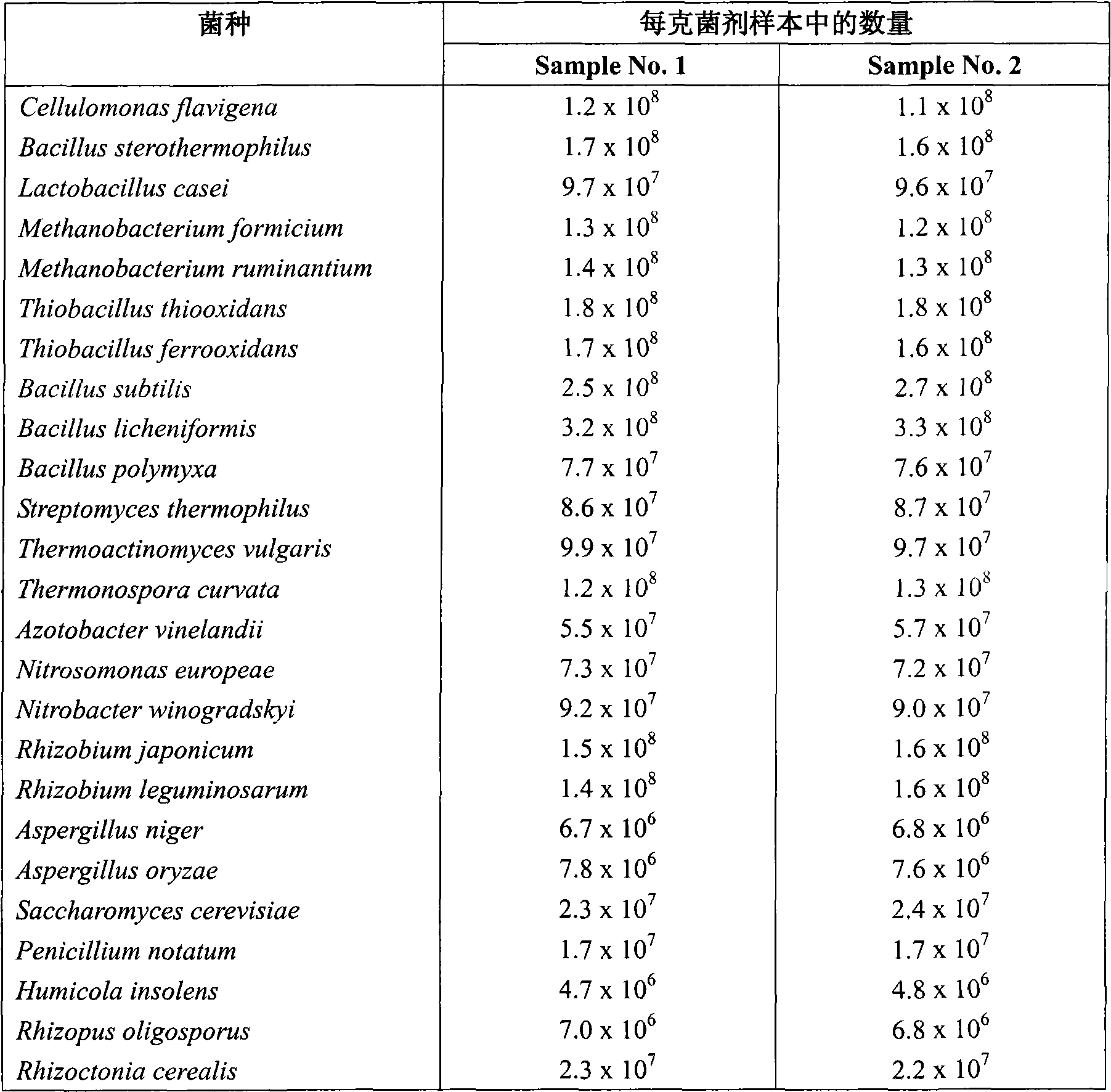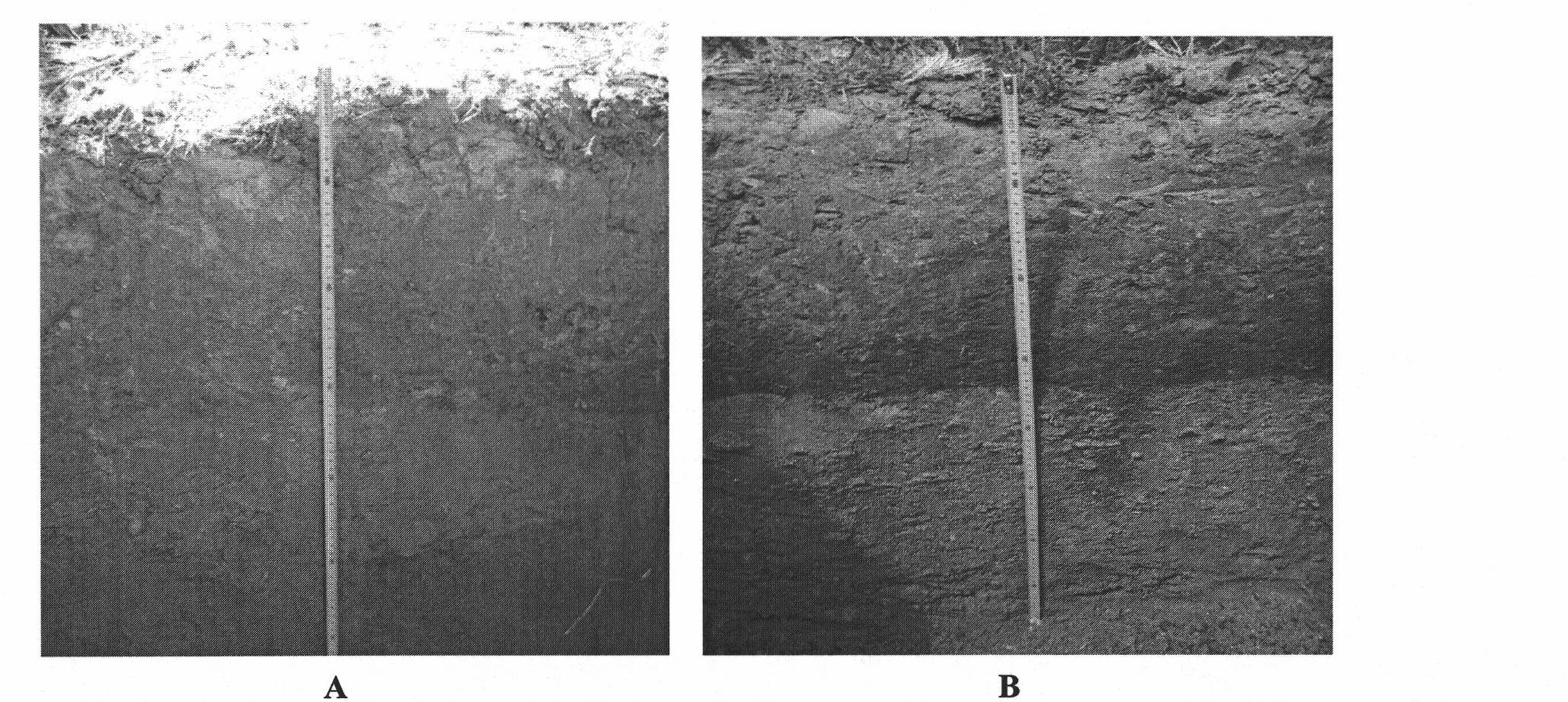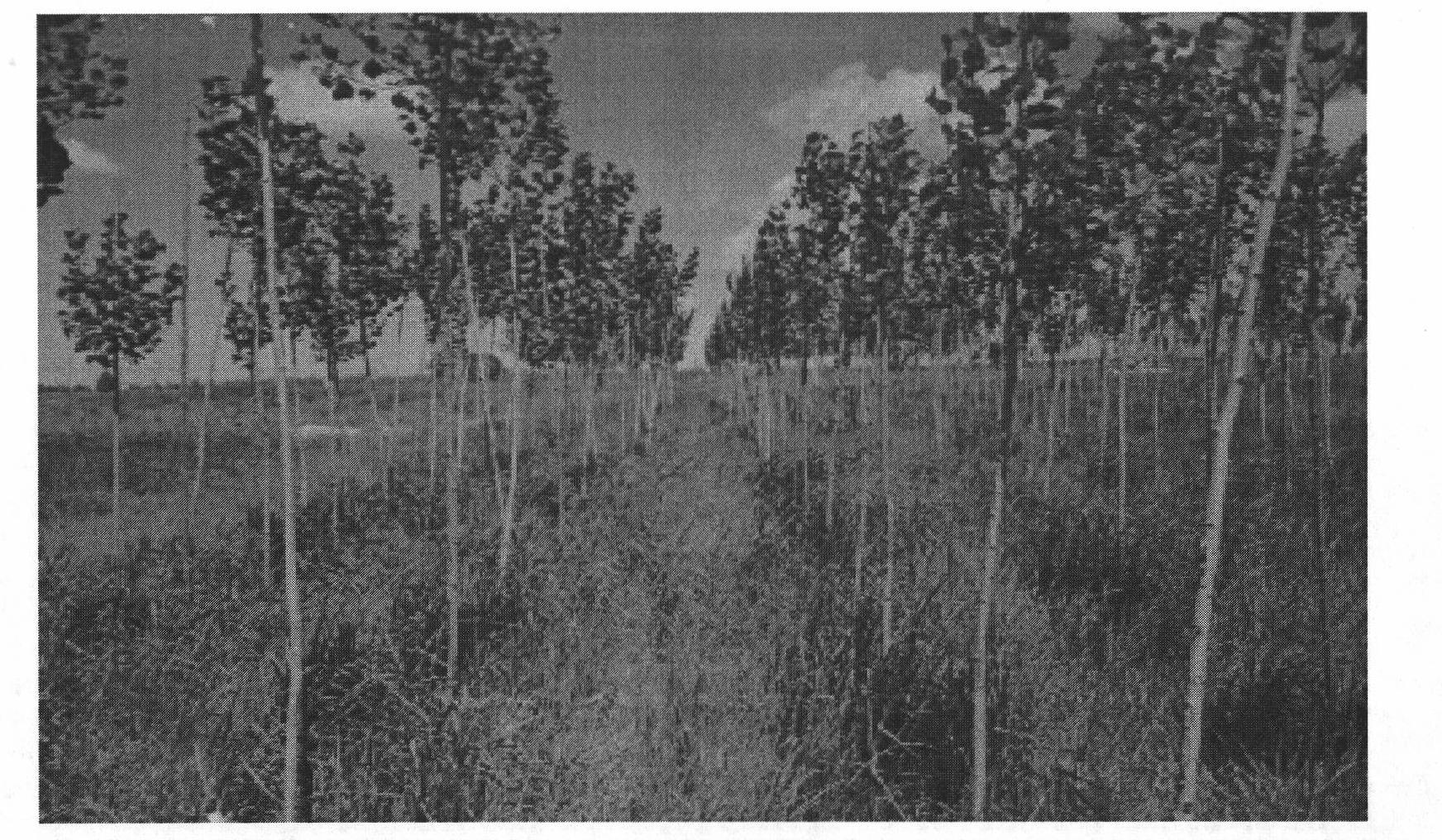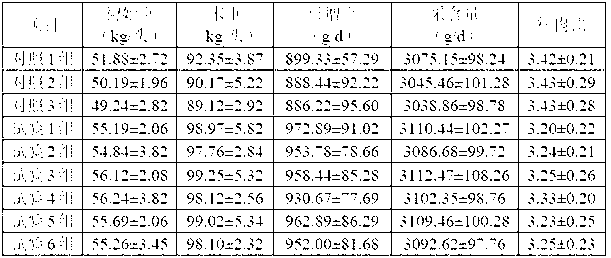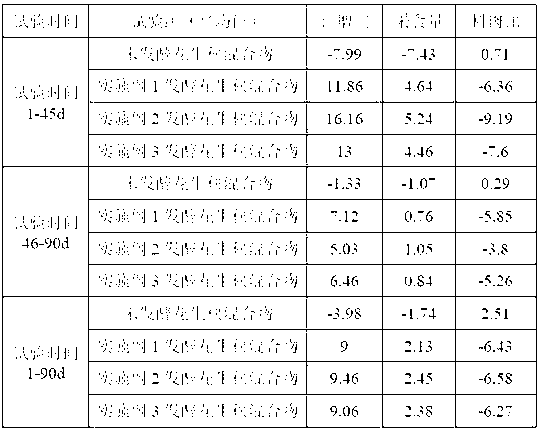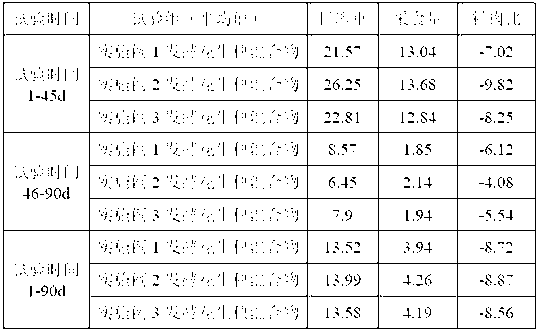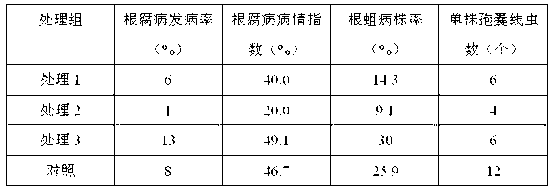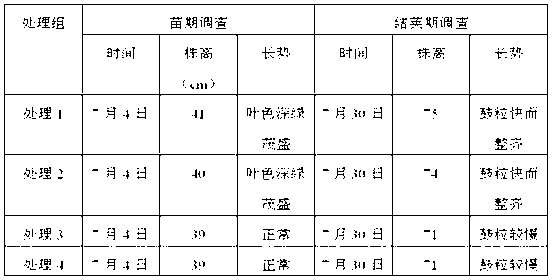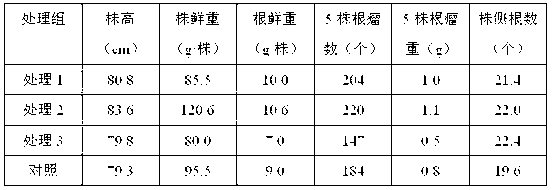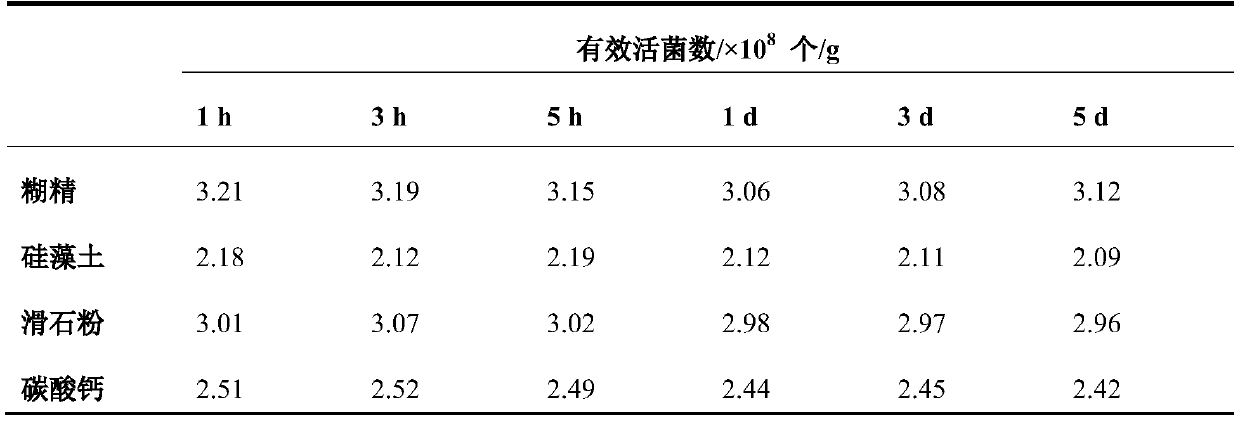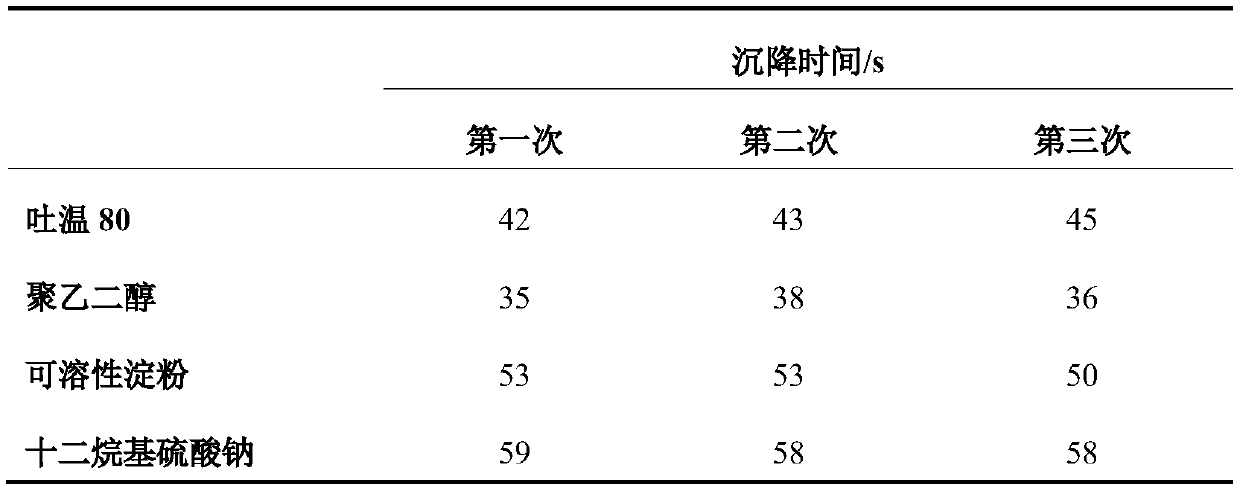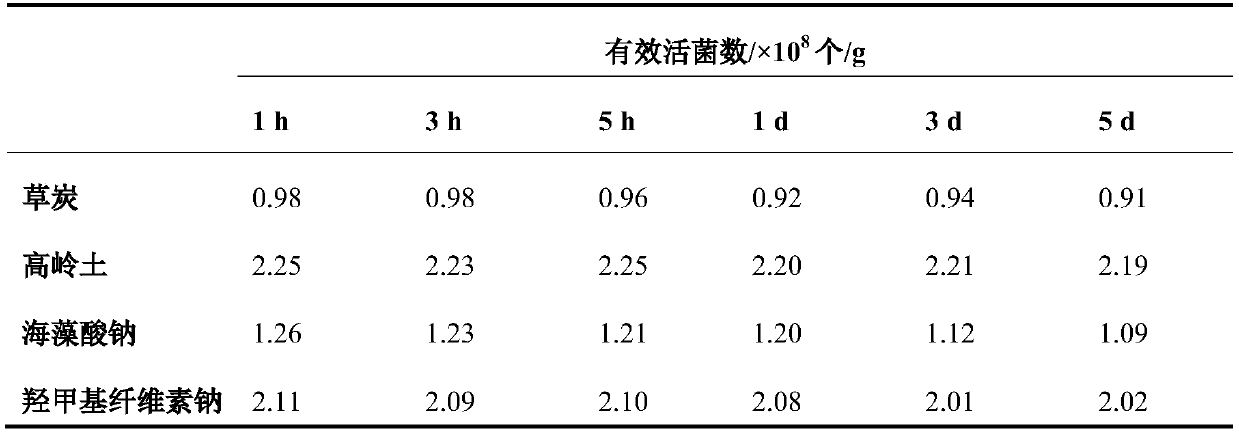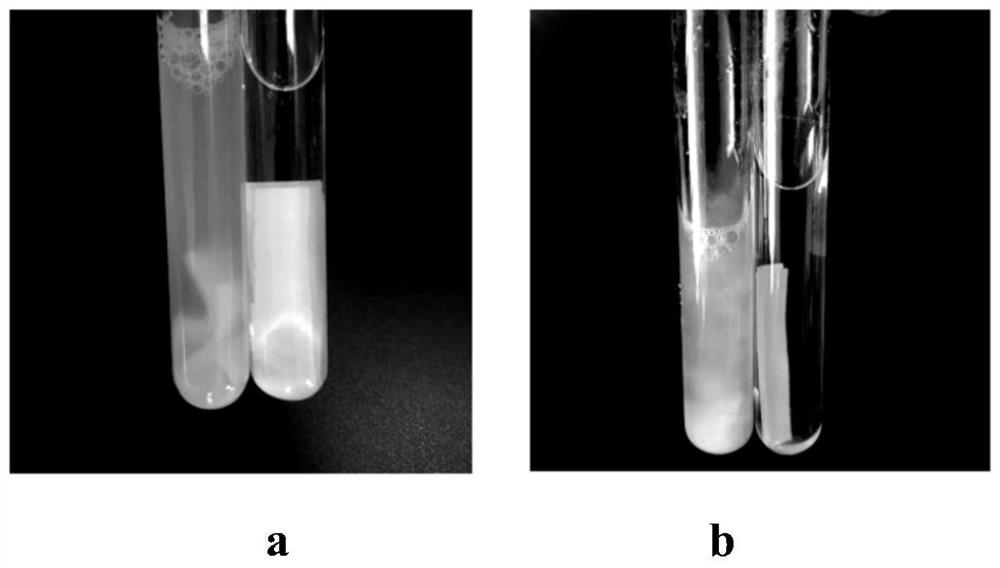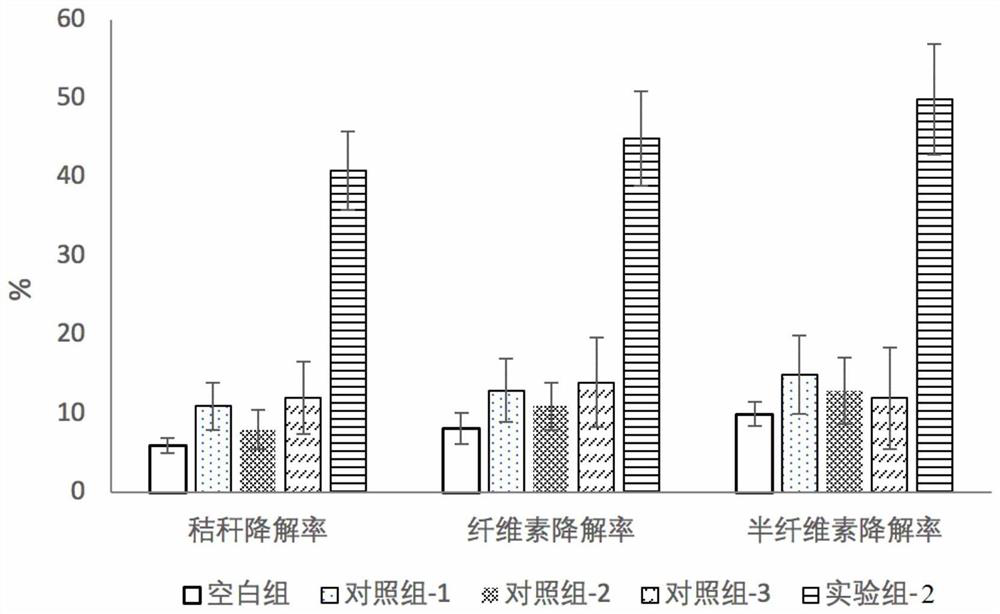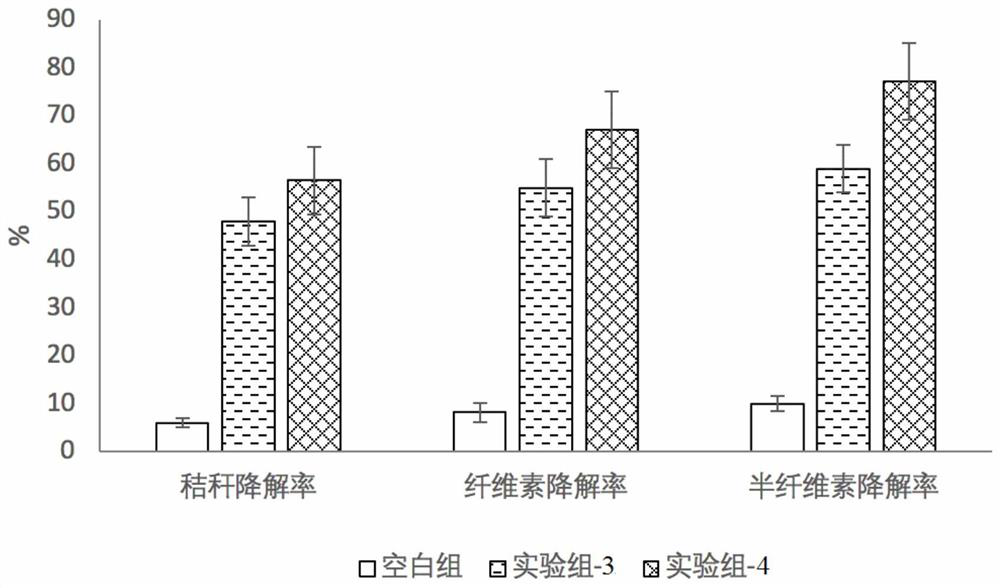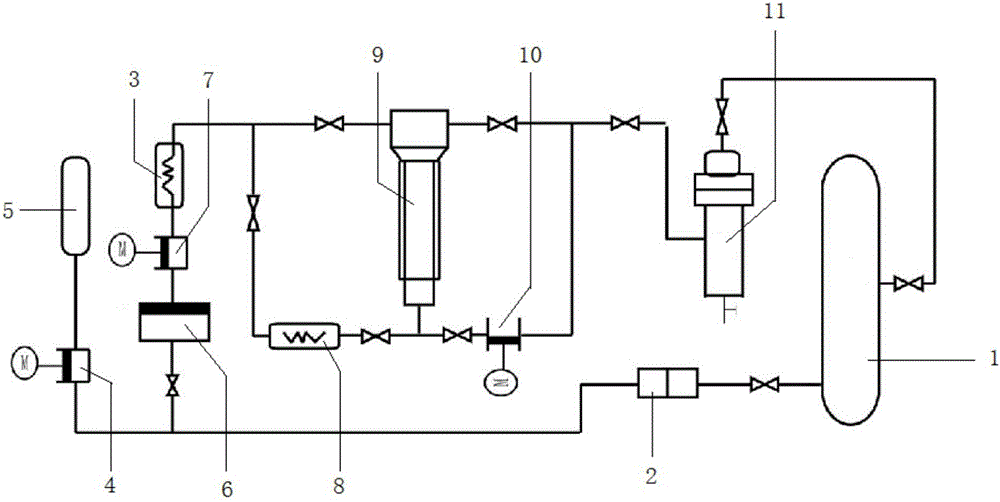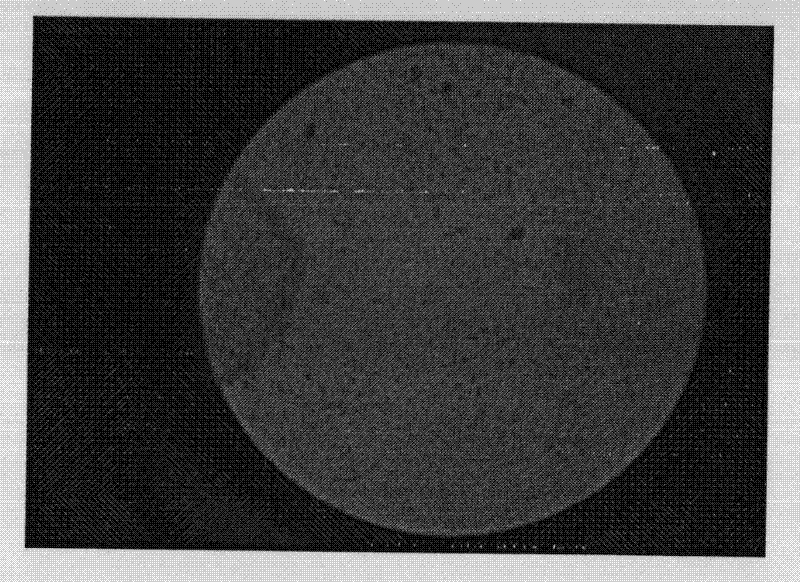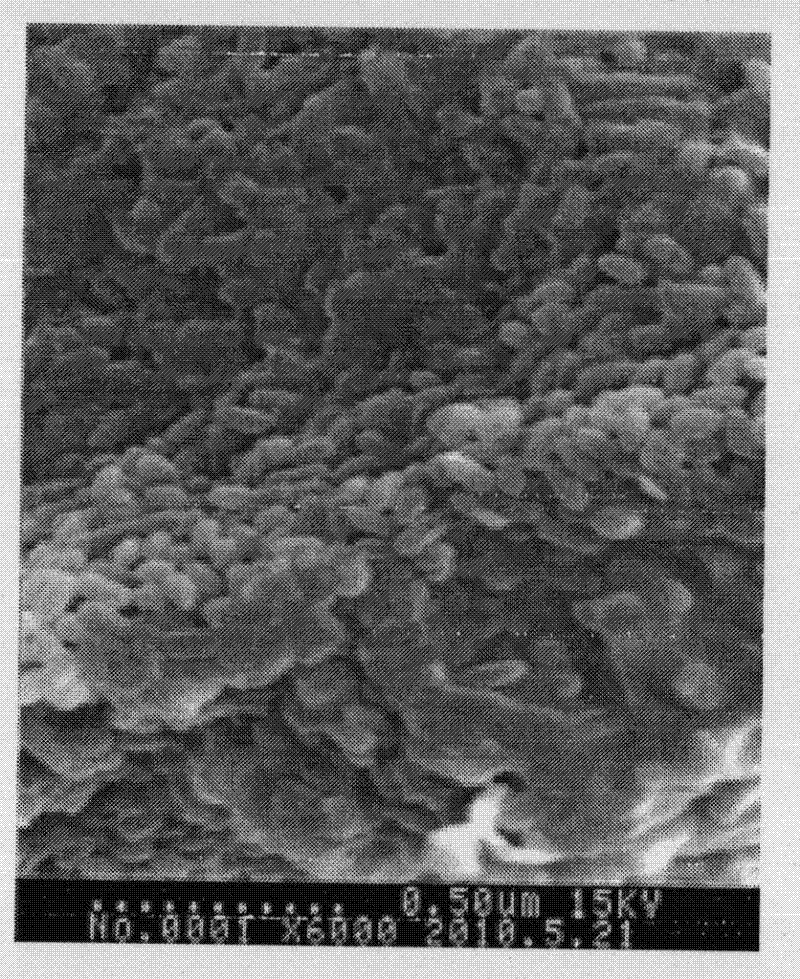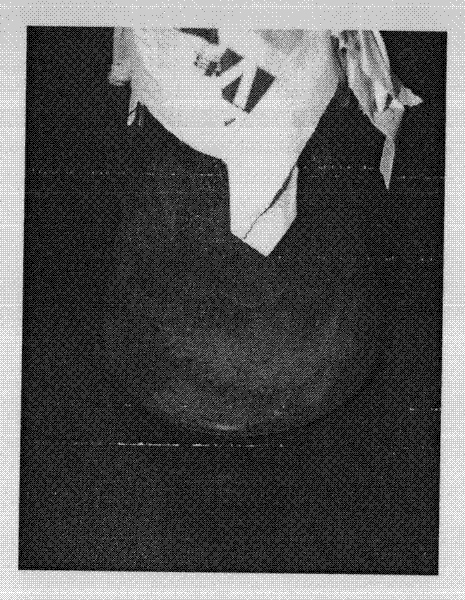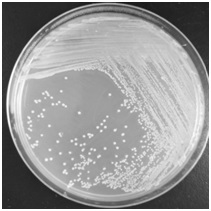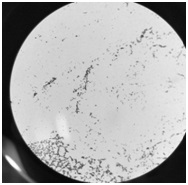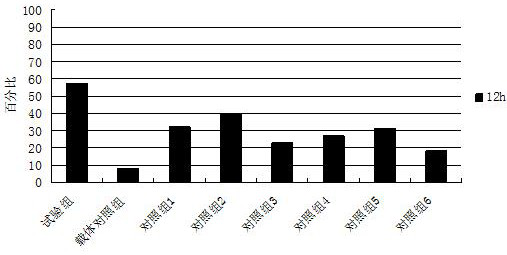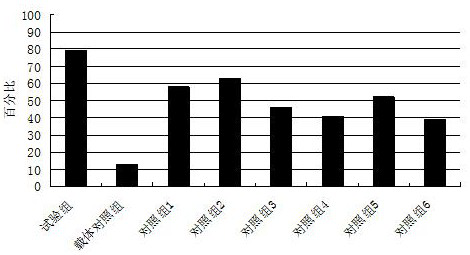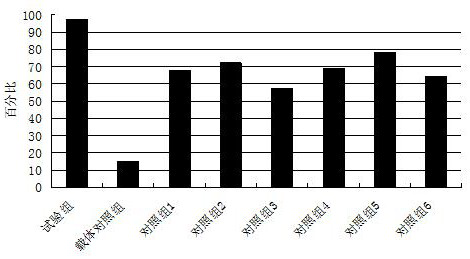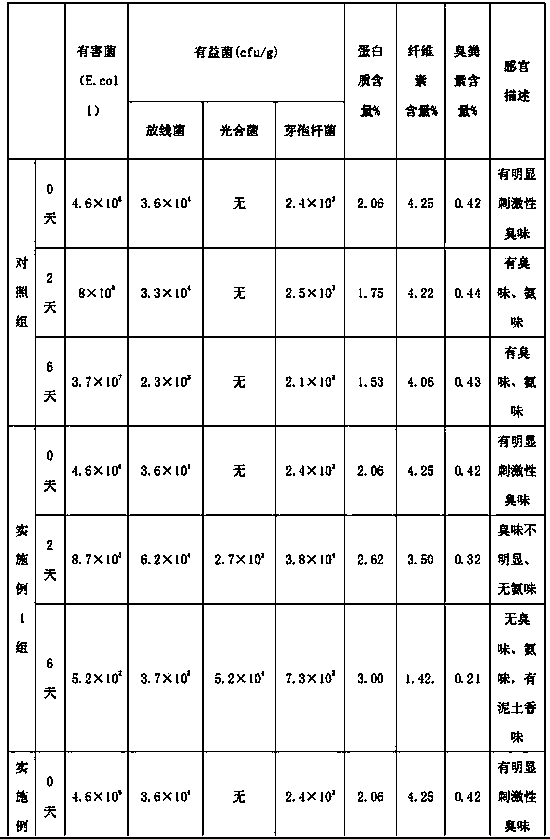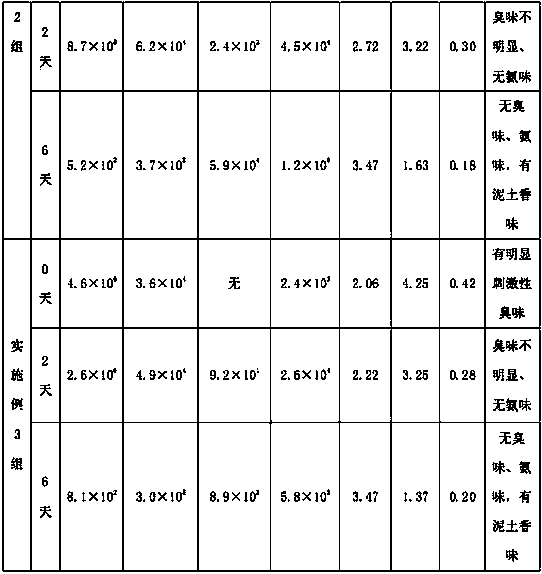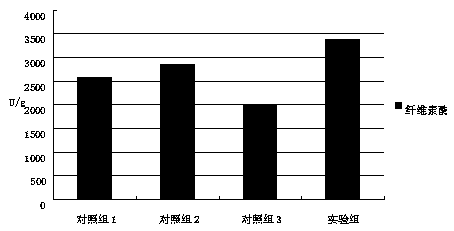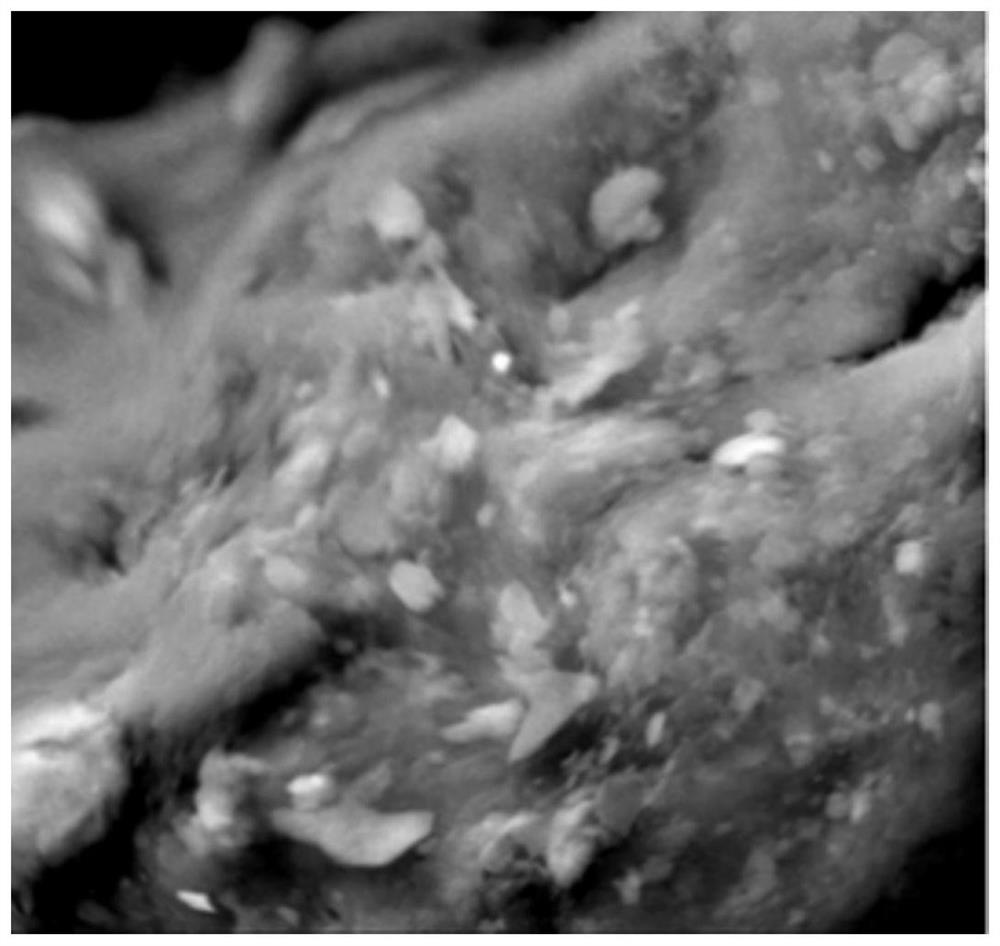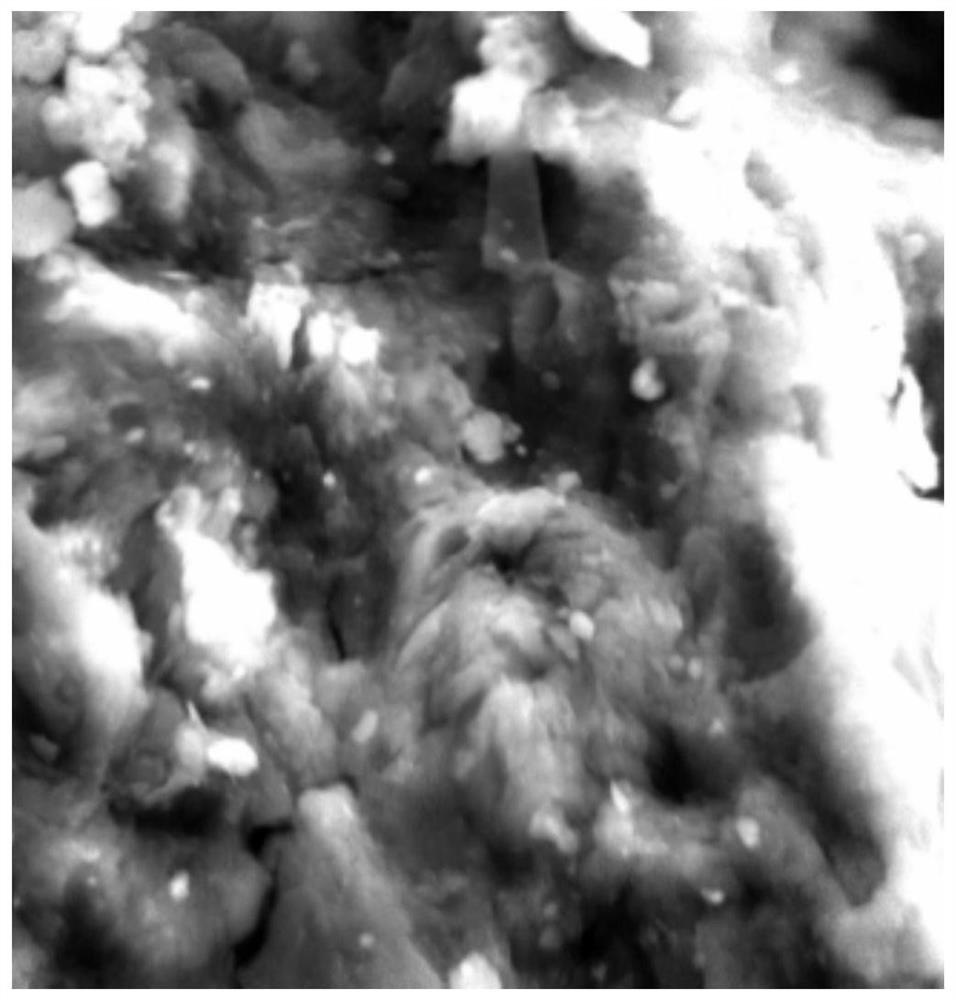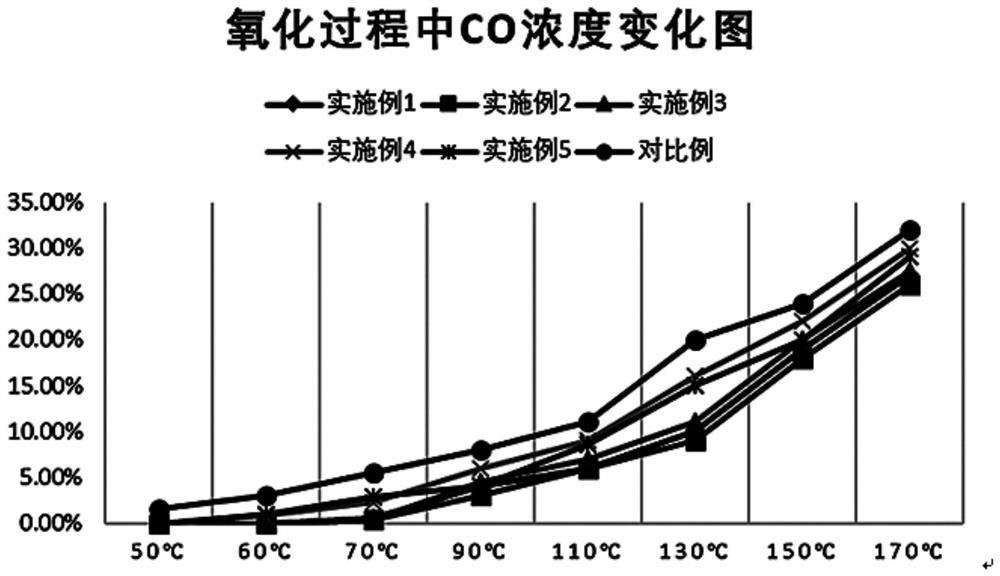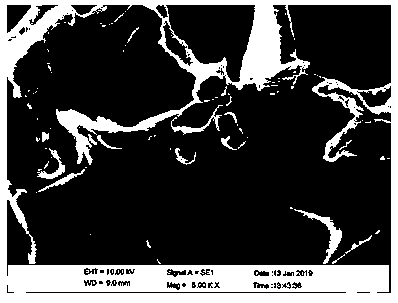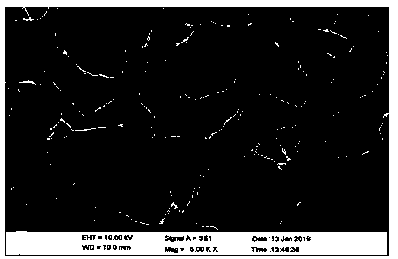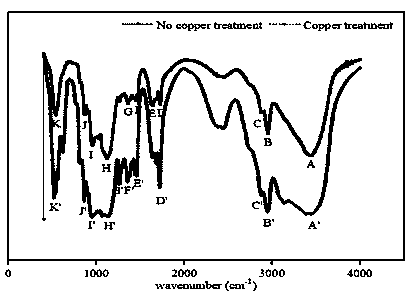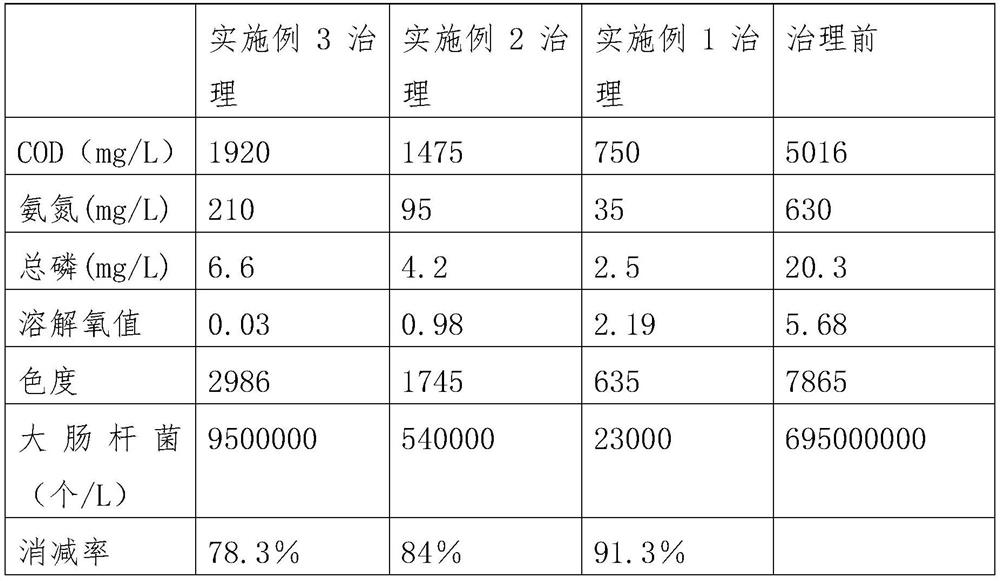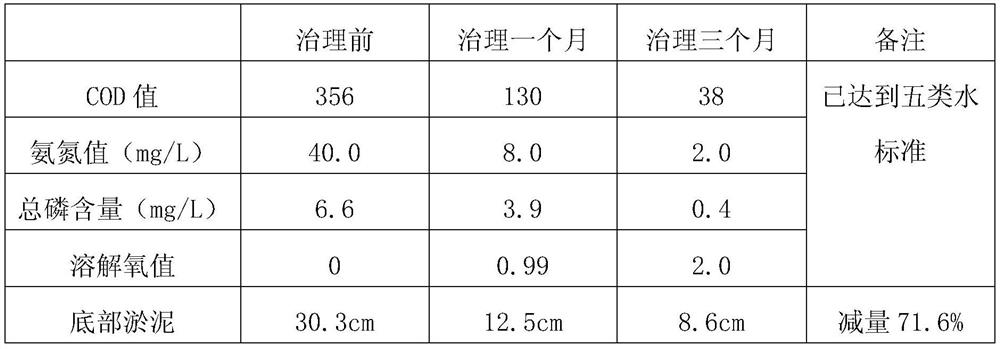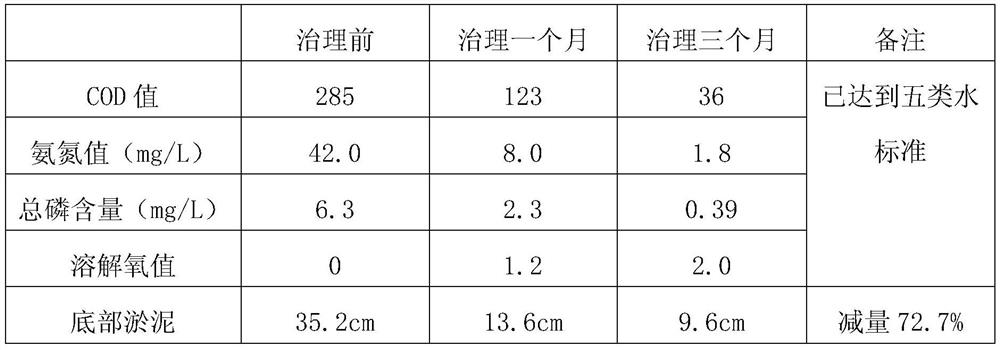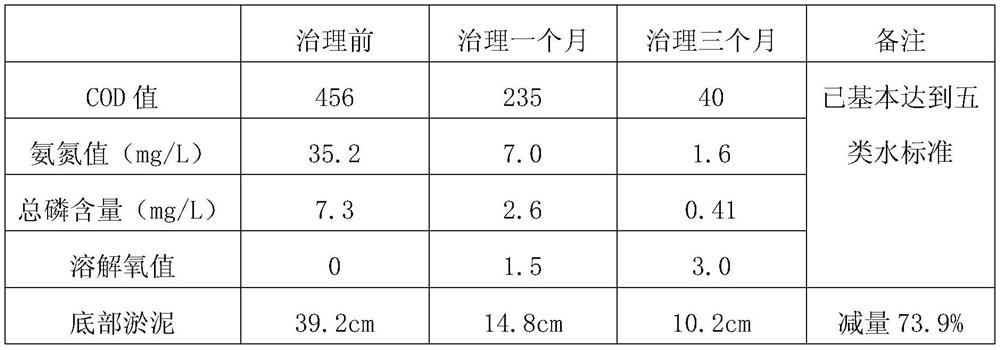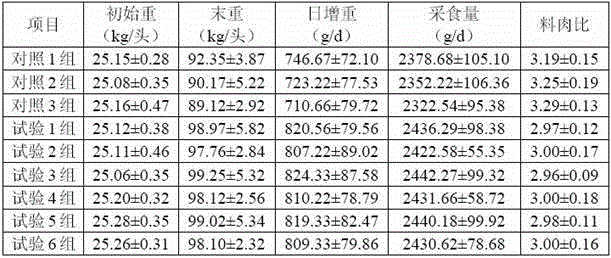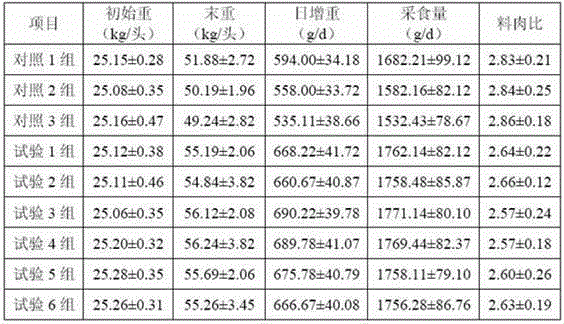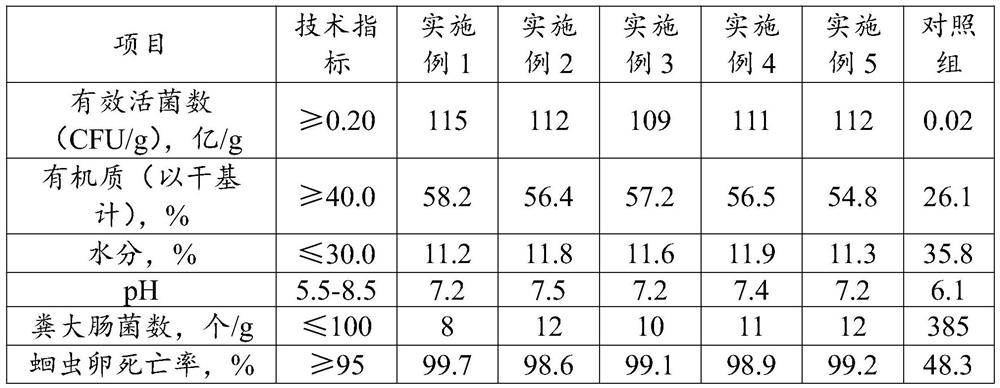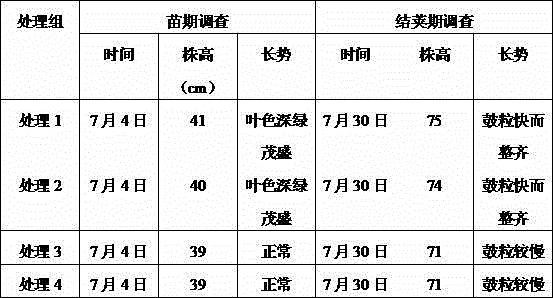Patents
Literature
34 results about "Cellulomonas sp." patented technology
Efficacy Topic
Property
Owner
Technical Advancement
Application Domain
Technology Topic
Technology Field Word
Patent Country/Region
Patent Type
Patent Status
Application Year
Inventor
Pyridine degradable bacteria, complex bacterial agent thereof, preparation and use
ActiveCN101481673AEfficient degradationEfficient metabolismBacteriaWater contaminantsSynechococcusHigh concentration
The invention discloses a pyridine-degrading bacterium as well as a composite bacterial agent, a preparation method and uses thereof. The newly-separated Rhodococcus pyridinovora KT-J002 CGMCC No.2789 and Cellulomonas sp KT-J007 CGMCC No.2788 not only can effectually degrade the high concentration pyridine, but also has tolerance or degradation ability for toxic substances such as benzene, phenol, dimethylbenzene, quinoline, cyanide and the like; the composite bacterial agent composed of Rhodococcus pyridinovora KT-J002 CGMCC No.2789, Cellulomonas sp KT-J007 CGMCC No.2788, Paracoccus d enitrificans W12 CGMCC No.1673, Micrococcus luteus ATCC 49442 and Arthrobacter crystallopoietes ATCC 15481 is used for environmental improvement, can effectually degrade the pyridine and is particularly suitable for the biological treatment of coking waste water.
Owner:SINOBIOWAY BIO AGRI GRP CO LTD
Manifold microbe mixed culture fermentation agent and method for producing high energy protein biology feedstuff
InactiveCN101390566AEnsure safetyConducive to preservationFood processingAnimal feeding stuffBiotechnologyPropanoic acid
The invention relates to the biological fermentation technology, in particular to a compound microbial starter, and a method which uses the compound microbial starter to produce high-energy protein biological feed. The compound microbial starter selects cellulomonas sp dinitrogen, cellulomonas flavigena, condensate bacillus, lactobacillus acidophilus, bacillus subtilis, lactobacillus starch, compound enzyme bacteria, propionic acid bacteria, candida yeast, saccharomyces diastaticus, saccharomyces cerevisiae, as well as aroma-producing yeast as the bacteria sources, and makes use of the modern biotechnology to prepare various microbial agents; the microbial agents are then treated with anaerobic fermentation with the discarded sweet corn cobs, corn stalks, pea skins, abandoned vegetables and other discarded crops, so as to obtain the high-energy protein biological feed required in livestock and poultry breeding industry. The invention solves the problem of low utilization rate of crop resources; and the high-energy protein biological feed can improve the palatability of feed, increase the enzyme content of the feed, provide an effective way for developing the animal husbandry and solving the food conflicts between people and livestock, as well as reduce the pollution to the environment caused by the traditional crop waste burning.
Owner:TANGSHAN SENA BIOLOGY TECH SERVICING
Household sludge reduction compound microbial preparation as well as preparation and application methods thereof
The invention relates to a household sludge reduction compound microbial preparation as well as preparation and application methods thereof, belonging to the field of microbial application. Based on the total bacteria count, the household sludge reduction compound microbial preparation comprises 10-20% of Celloulonmonassp., 10-20% of Serratiasp., 30-60% of Bacilluspumilus and 20-30% of Rhodotorulamucilaginosa, wherein the Celloulonmonassp. is selected from at least one of CCTCCAB209393 and YMCCKMS3990, the Serratiasp. is selected from at least one of ACCC02490 and CICC20143, the Bacilluspumilus is ACCC10113 and the Rhodotorulamucilaginosa is CICC31192. The microbial preparation and the preparation method provided by the invention are simple and feasible, economic and reasonable and free from secondary pollution to the environment.
Owner:ANHUI QINGMING ENVIRONMENTAL PROTECTION TECH CO LTD
Straw degradation acidification microbial inoculum and manufacturing method thereof
ActiveCN106148224AEffective destructionIncrease gas production rateBacteriaMicroorganism based processesCelluloseBacillus cereus
The invention discloses a straw degradation acidification microbial inoculum and a manufacturing method thereof. Active ingredients of the composite microbial inoculum for degrading straw are cellulomonas flavigena, clostridium cellulolyticum, bacillus subtilis and bacillus cereus. The microbial inoculum breaks through the limitation that fungi and lytic enzymes thereof cannot quickly and efficiently decompose natural cellulose, a key pretreatment technology is provided for straw biogas fermentation, and the straw degradation acidification microbial inoculum has wide application prospect in the field of preparation of biogas from lignocellulose raw materials such as the straw.
Owner:中农绿能科技集团有限公司
Microbial inoculum and application thereof in improvement of facility agriculture
ActiveCN102827774AReduce in quantityImprove adaptabilityFungiBio-organic fraction processingBiotechnologyLichen
The invention provides a viable microbial composition for fermenting and producing a facility agriculture ameliorant, which is characterized in that the microbial composition is composed of Cellulomonasfabia, Bacillus stearothermophilus, Lactobacilli, methanobacteria, thiobacilli, Bacillus licheniformis, Bacillus polymyxa, streptomycete, Thermoactinomyces, Thermomonospora, azotobacter, Nitrosomonas, nitrobacter, rhizobia, Aspergillus oryzae, saccharomyces, penicillium, Humicola, Rhizopus and mycorrhiza fungi. In addition, the invention also provides a facility agriculture ameliorant which is fermented and produced by the microbial composition, application, a method and the like.
Owner:宋彦耕
Composite fermentation inoculant for processing animal wastes, and preparation method and application thereof
ActiveCN103074228AImprove fermentation effectGrowth inhibitionBacteriaMicroorganism based processesBiotechnologyFermentation
The invention discloses a composite fermentation inoculant for processing animal wastes, and a preparation method thereof. The composite fermentation inoculant is characterized in that the active components of the composite fermentation inoculant comprise Bacillus beringensis, Rhodobacter sulfidophilus and Cellulomona ssp.; the mass ratio of the Bacillus beringensis to the Rhodobacter sulfidophilus to the Cellulomona ssp. is 0.5-1.5:0.5-1.5:0.5-1.5; and the preparation method comprises the following steps: carrying out inclined strain culture of the Bacillus beringensis, the Rhodobacter sulfidophilus and the Cellulomona ssp.; carrying out liquid seed enlargement culture to obtain a Bacillus beringensis broth, a Rhodobacter sulfidophilus broth and a Cellulomona ssp. broth; and mixing the above broths according to a mass ratio of 0.5-1.5:0.5-1.5:0.5-1.5, inoculating the mixed broth to a solid enlargement culture medium with the inoculation amount of 4-5%(w / v), and carrying out enlargement culture to obtain the composite fermentation inoculant. The composite fermentation inoculant has the advantages of deodorizing, inhibition of the growth of pathogenic microorganisms in the animal wastes, improvement of the content of proteins in the animal wastes, high processing efficiency and strong pertinence.
Owner:河北沃稼农业科技有限公司
Microbial agent and application for treating cultivating wastes
The invention provides a live microbial composition for fermentation treatment of cultivating wastes. The composition is characterized by consisting of bean fiber monad, bacillus stearothermophilus, lactobacillus, methanobacteria, thiobacillus, bacillus licheniformis, bacillus polymyxa, streptomycete, thermoactinomycete, thermomonospora, nitrogen-fixing bacteria, nitrated monad, nitrobacteria, rhizobium, Aspergillus oryzae, yeasts, moulds, humicola, rhizopus and glomus mosseae. In addition, the invention further provides an organic fertilizer generated by virtue of fermentation of the microbial composition as well as an application and a method thereof. In production of the organic fertilizer, cultivating wastes such as animal wastes are objectively treated.
Owner:宋彦耕
Microbial agent and soil modifying agent produced by fermentation thereof
ActiveCN101629156BImprove adaptabilityImprove fertilityFungiAgriculture tools and machinesBiotechnologyMicrobial agent
The invention relates to a microbial agent used for producing a soil modifying agent by fermentation, consisting of fiber monad, bacillus, lactobacillus, methanobacteria, thiobacillus, streptomycete, high-temperature actinomyces, high-temperature monad, azotobacteria, nitration monad, nitration bacilus, rhizobium, koji mold, leaven, blue mold, detritus mold, rhizopus as well as mycorrhizal fungi and substrate. In addition, the invention also relates to a soil modifying agent produced by the fermentation of the microbial agent, application thereof and the like.
Owner:宋彦耕
Fermentative bacteria solution for peanut vines and peanut vine fermentation feed
InactiveCN103243053ARaise crude proteinIncrease crude fat contentFungiBacteriaBiotechnologyWhole milk
The invention discloses a fermentative bacteria solution for peanut vines and a peanut vine fermentation feed, which belong to the technical field of fermentation feeds. The fermentative bacteria solution for peanut vines is composed of the following components in parts by weight: 30-40 parts of a bacteria solution A and 10-15 parts of a bacteria solution B, every 40g of the bacteria solution A contains cellulomonas (1*10<9>-4*10<9> CFU), butyrivibrio fibrisolvens (1.5*10<9>-5*10<9> CFU), saccharomyces cerevisiae (1.68*10<9>-4.32*10<9> CFU), bacillus subtilis (2.25*10<10>-6.67*10<10> CFU), corn steep liquor (1-3g by dry matters), and the balance of water and necessary microbial matrixes; and every 10g of bacteria solution B contains lactic acid bacteria (0.22*10<10>-0.96*10<10> CFU), corn steep liquor (0.47-1.35g by dry matters), whole milk powder (0.67-2g), and the balance of water and necessary microbial matrixes. A peanut vine fermentation feed prepared by using the fermentative bacteria solution is prepared from the following components in parts by weight through mixing and fermenting: 45-55 parts of peanut vine powder, 5-8 parts of corn flour, 2-3 parts of soybean meal powder, 1-2 parts of urea, 1-2 parts of calcium sulphate and 40-55 parts of the fermentative bacteria solution.
Owner:HENAN YISHENGYUAN FEED SALES
Microbial agent and application of antigravity and cropping effects of microbial agent
ActiveCN102839126AReduce in quantityReduce usageBio-organic fraction processingFungiBiotechnologyHumicola lanuginosa
Owner:宋彦耕
Efficient composite organic matter decomposing inoculant
InactiveCN102757916ABreak the drawbacks of traditional fermentation that takes more than 3 monthsBreaking the drawbacks that take more than 3 monthsBio-organic fraction processingBacteriaBiotechnologyDecomposition
The invention discloses an efficient composite organic matter decomposing inoculant capable of accelerating decomposition of organic matters, belonging to the technical field of microbes. The efficient composite organic matter decomposing inoculant is prepared by mixing the following components in percentage by volume: 30% of Cellulomonas flavigena zymophyte solution, 30% of Bacillus stearothermophilus zymophyte solution and 40% of Bacillus subtilis zymophyte solution. The total viable count of the three strains is 1 billion / ml, and the microbial inoculant type is liquid. The strains are respectively cultured in a fermentation tank without foreign microbes, and then compounded to obtain the efficient composite organic matter decomposing inoculant. By matching the three strains, various organic matters can be quickly degraded and converted into available organic fertilizers containing multifunctional probiotics within 15 days or so, and thus, the invention overcomes the defect that the traditional degradation needs more than 3 months.
Owner:XUZHOU QIYUAN ECOLOGY AGRI DEV
Method for evaluating microbial powder promoting degradation of garden waste
PendingCN109943508AEfficiently promotes degradationPromote degradationBacteriaMicroorganism based processesLandscapingPolyethylene glycol
The invention discloses a method for evaluating microbial powder promoting degradation of garden waste. In the method, the microbial powder is inoculated to the landscaping waste, culture is performedat the constant temperature of 30+ / -1 DEG C, the mass change of degradation residuums of the landscaping waste is periodically measured, and the degradation efficiency of the microbial powder to thelandscaping waste is evaluated based on the degradation weight loss rate; when culture is performed for 15 days, the degradation weight loss rate of the microbial powder to the landscaping waste is not lower than 30%; the microbial powder is formed by mixing cellulomonas flavigena thalli, an adsorptive carrier and a protective agent in the mass ratio of 1:(0.5-1.5):(0.5-1.5). The adsorptive carrier is selected from dextrin, diatomaceous earth, talcum powder and calcium carbonate; a wetting agent is selected from Tween 80, polyethylene glycol, soluble starch and sodium lauryl sulfate; the protective agent is selected from turf, kaolin and sodium alginate or sodium carboxymethyl cellulose. The microbial powder is used for treating the landscaping waste and can meet the requirement for large-scale composting disposal of the landscaping waste.
Owner:XIAN BOTANICAL GARDEN SHAANXI PROV
Composite microbial agent for fermenting and degrading cellulose in straw
Disclosed is a composite microbial agent for fermenting and degrading cellulose in straw. The composite microbial agent comprises bacillus subtilis, exiguobacterium and cellulomonas, a combination with high degradation efficiency is obtained through optimization and compounding, and the composite microbial agent can rapidly degrade the cellulose in the straw, which is beneficial to the resource utilization of the cellulose biomass waste.
Owner:BEIJING UNION UNIVERSITY
Biological enzyme scouring and bleaching agent and scouring and bleaching method for scouring and bleaching roving
InactiveCN106757917AReflect the concept of modern lifeNo pollution in the processMicroorganism based processesSolvent treatment with solvent recoveryBacillus cereusPseudomonas
The invention discloses a biological enzyme scouring and bleaching agent and a scouring and bleaching method for scouring and bleaching roving. The biological enzyme scouring and bleaching agent is a mixed solution obtained by the following steps: separately fermenting cellulomonas sp, trichodermareesei, bacillus cereus, pseudomonas and aspergillus niger (ASP-12) to obtain fermentation broth; centrifuging the fermentation broth to obtain respective biological enzyme solutions; mixing the respective biological enzyme solutions according to the volume ratio of 1:(1 to 10):(1 to 10):(1 to 10):(1 to 10). For flax roving scoured and bleached by adopting the method disclosed by the invention, the whiteness is 55 to 80 percent, the weight loss ratio is 7 to 15 percent, the residual gum content is 4 to 12 percent, the single-fiber tensile strength is 7 to 15cN / dtex, and the elongation at break is 6 to 12 percent. The scouring and bleaching method disclosed by the invention has the advantages of no pollution and zero discharge in the whole process and important theoretical significance and application value; the scouring and bleaching method accords with the development requirement of low-carbon economy and embodies a modern life concept of fashion bast fiber spinning and green bast fiber spinning.
Owner:DALIAN POLYTECHNIC UNIVERSITY
A straw-degrading acidifying bacterial agent and its manufacturing method
ActiveCN106148224BQuick breakdownQuick destructionBacteriaMicroorganism based processesBiotechnologyCellulose
Owner:中农绿能科技集团有限公司
Cellulomonas fimi DA 8 bacterial strain as well as acquiring method and application thereof
InactiveCN102010836BIncrease the lengthGrain reductionBacteriaBiochemical fibre treatmentBiotechnologyPectinase
Owner:DONGHUA UNIV
A kind of cellulomonas and method and application thereof for preparing microbial flocculant
ActiveCN111394279BNo toxicityNo secondary pollutionBacteriaWaste water treatment from animal husbandryBiotechnologyMicroorganism
The invention discloses a cellulomonas and a method and application for preparing a microbial flocculant by using the cellulomonas. The invention solves the problems of high production cost of the existing microbial flocculant and secondary pollution after flocculation, and the newly discovered strain The classification of 40‑2 is named as Cellulomonas livestock sp. 40‑2, Cellulomonas livestock 40‑2 has been preserved in the General Microbiology Center of China Committee for the Collection of Microbial Cultures, and the preservation number is CGMCC No.1.17732 . The advantages of the present invention are as follows: 1. Discover a new species of Cellulomonas - Cellulomonas 2. The microbial flocculant prepared by Cellulomonas has good flocculation performance; 3. The microbial flocculant produced is efficient, safe and It is non-toxic and does not produce secondary pollution; 4. The fermentation time of the microbial flocculant produced is short, the dosage is low, and the cost is saved. In addition, the present invention relates to that the microbial flocculant has great application potential and good application prospect in treating wastewater from livestock farms.
Owner:盘锦检验检测中心 +1
A kind of composite bacteria agent for foreign aid nutrition of hickory chick cultivation and its application
ActiveCN108048346BSpeed up germinationIncrease productionCalcareous fertilisersFungiBiotechnologyNutrition
The invention discloses a compound bacterial agent for foreign aid nutrition in hickory chick cultivation and an application thereof, belonging to the field of edible fungus cultivation. The compound microbial agent used in the nutrition material of the present invention includes Cellulomonas lutea, Candida utilis and Geotrichum candidum. According to the formula of 30-35 parts of rice husk, 30-35 parts of straw, 30-35 parts of fungus chaff, 1-2 parts of gypsum, 2-3 parts of glucose, 1-2 parts of table salt and 0.1-0.3 parts of potassium dihydrogen phosphate The compound microbial agent is fermented and put into a plastic bacterial bag. The same side of the material bag is eye-catching, with a hole diameter of 1-2cm. Place 2 rows on both sides of the morel mushroom bed, and the opening is tightly covered with soil. The compound microbial agent of the present invention is symbiotically coordinated, does not antagonize each other, and can provide sufficient foreign aid nutrition after being fermented with a substrate. The invention uses the composite bacterial agent and the bacterial chaff rich in growth-promoting substances as external nutrition, which can significantly increase the yield and accelerate the germination speed of the hickory chick.
Owner:LIAONING ACAD OF AGRI SCI
Microbial agent for removing hydrogen sulfide odor
The invention belongs to the technical field of microbes, and discloses a microbial preparation for removing hydrogen sulfide malodorous substances, which includes the following raw material bacteria: Burkholderia allium, Enterococcus faecalis, Acidophilus ferrooxidans, Candida albicans, Pseudomonas fluorescens, Cellulomonas moist. The bacterial strains in the microbial preparation of the invention are reasonably compatible, symbiotically coordinated, non-antagonistic, high in activity, and can effectively treat sulfur-containing malodorous substances such as hydrogen sulfide.
Owner:上海原豕农业科技有限公司
Composite fermentation inoculant for processing animal wastes, and preparation method and application thereof
ActiveCN103074228BImprove fermentation effectGrowth inhibitionBacteriaMicroorganism based processesBiotechnologyFermentation
The invention discloses a composite fermentation inoculant for processing animal wastes, and a preparation method thereof. The composite fermentation inoculant is characterized in that the active components of the composite fermentation inoculant comprise Bacillus beringensis, Rhodobacter sulfidophilus and Cellulomona ssp.; the mass ratio of the Bacillus beringensis to the Rhodobacter sulfidophilus to the Cellulomona ssp. is 0.5-1.5:0.5-1.5:0.5-1.5; and the preparation method comprises the following steps: carrying out inclined strain culture of the Bacillus beringensis, the Rhodobacter sulfidophilus and the Cellulomona ssp.; carrying out liquid seed enlargement culture to obtain a Bacillus beringensis broth, a Rhodobacter sulfidophilus broth and a Cellulomona ssp. broth; and mixing the above broths according to a mass ratio of 0.5-1.5:0.5-1.5:0.5-1.5, inoculating the mixed broth to a solid enlargement culture medium with the inoculation amount of 4-5%(w / v), and carrying out enlargement culture to obtain the composite fermentation inoculant. The composite fermentation inoculant has the advantages of deodorizing, inhibition of the growth of pathogenic microorganisms in the animal wastes, improvement of the content of proteins in the animal wastes, high processing efficiency and strong pertinence.
Owner:河北沃稼农业科技有限公司
A kind of microbial preparation for repairing hydroxymethylcellulose wastewater and its preparation method
ActiveCN107254412BPromote proliferationHigh activityFungiBacteriaCelluloseMicrobiological Techniques
The invention belongs to the technical field of microorganisms and discloses a microbial preparation for repairing hydroxymethyl cellulose wastewater. The microbial preparation is prepared from the following raw materials: anabaena variabilis domestication liquid, cellulomonas flavigena domestication liquid, bacillus subtilis domestication liquid and Aspergillus niger domestication liquid, wherein the anabaena variabilis domestication liquid, the cellulomonas flavigena domestication liquid, the bacillus subtilis domestication liquid and the Aspergillus niger domestication liquid are separately used. According to the microbial preparation disclosed by the invention, four microorganisms are adopted, reasonably matched and well synergized, so that proliferation and enzyme activity of the microorganisms can be promoted; the microbial preparation has a good effect for repairing hydroxymethyl cellulose wastewater.
Owner:威海惟农生物科技有限公司
A preparation method of a chemical inhibitor for preventing lignite spontaneous combustion
ActiveCN109628356BGood chemical resistanceGood synergyBacteriaDust removalBiotechnologySpontaneous combustion
The invention relates to a preparation method of an inhibitor for preventing spontaneous combustion of lignite. The preparation method includes conducting expansion culture, fermentation, centrifugation and compounding on strains of anti-phenol brachybacterium and moist cellulomonas. A using method of the inhibitor for preventing the spontaneous combustion of the lignite includes the following steps of mixing the inhibitor and raw coal in a mass ratio of 1:10, stirring uniformly and standing for fermentation for 24 hours at 30 DEG C for sufficient resistance. According to the method, a biological novel environmentally-friendly inhibitor for preventing the spontaneous combustion of the lignite is provided. The inhibitor is environmentally friendly and safe, the lignite is modified by fermentation, and a good resistance effect can be achieved by using only a small amount of chemical product magnesium chloride.
Owner:吉安诺惠诚莘科技有限公司
Method for removing copper in wastewater by using sodium alginate immobilized cellulomonas
InactiveCN110950440AHigh removal rateSimple preparation stepsWater treatment compoundsWater contaminantsMicrosphereEnvironmental engineering
The invention relates to a method for removing copper in wastewater by using sodium alginate immobilized cellulomonas. The method is characterized by comprising the following steps: culturing cellulomonas in a culture medium, immobilizing cellulomonas, and adding immobilized microspheres into to-be-purified polluted water containing copper ions. Compared with the prior art, the immobilized microsphere carrier prepared from sodium alginate has the advantages that a large number of carboxyl groups capable of being subjected to a complexation reaction with metal ions exist in molecules of the immobilized microsphere carrier, and the immobilized microsphere carrier is low in price and widely applied to free cells. The immobilized biotechnology has the advantages of being high in toxicity resistance, high in biological adsorption stability, high in pollutant removal speed and the like. The preparation steps are simple, the operation is convenient, the removal rate of low-concentration heavymetal copper in wastewater is high, the environmental protection benefit is obvious, and the application prospect is good.
Owner:NANHUA UNIV
Biological agent for domestic sewage treatment
The invention discloses a biological agent for domestic sewage treatment, and particularly relates to the technical field of sewage treatment. The microbial agent is prepared from the following raw materials in parts by weight: 8 to 10 parts of clostridium acetobutylicum, 12 to 16 parts of bacillus licheniformis, 16 to 20 parts of bacillus subtilis, 5 to 7 parts of lactobacillus acidophilus, 5 to 7 parts of methanosarcina, 3 to 5 parts of horsehair methane bacteria, 6 to 8 parts of rhodopseudomonas palustris, 4 to 6 parts of cellulomonas flavigena, 8 to 10 parts of streptococcus thermophilus, 8 to 10 parts of alcaligenes faecalis, 3 to 5 parts of bacillus amyloliquefaciens and 2 to 4 parts of nitrosomonas. The microbial agent containing various fungi, spore bacteria, bacteria, actinomycetes, aerobic microorganisms and anaerobic microorganisms can adapt to growth of thalli in an anaerobic environment with a high sewage degree and an aerobic environment with a low sewage degree, so that sewage with different degrees can be treated.
Owner:重明鸟健康产业(江苏)股份有限公司
Manifold microbe mixed culture fermentation agent and method for producing high energy protein biology feedstuff
InactiveCN101390566BIncrease feed intakePrevent gastroenteritisFood processingAnimal feeding stuffBiotechnologyPropanoic acid
Owner:TANGSHAN SENA BIOLOGY TECH SERVICING
A microbial agent for sludge reduction, its carrier and its preparation method
The invention discloses a microbial bacterial agent for reducing sludge, which comprises the following components in parts by weight: 8-10 parts of Clostridium acetobutylicum, 12-16 parts of Bacillus licheniformis, 16-20 parts of Bacillus subtilis, acidophilus 5-7 parts of Lactobacillus, 5-7 parts of Methanosarcina, 3-5 parts of M. 8-10 parts of Cocci, 8-10 parts of Alcaligenes faecalis, 3-5 parts of Bacillus amyloliquefaciens, 2-4 parts of Nitrosomonas, 1-3 parts of Issaccharomyces orientalis and 3-5 parts of Streptomyces bullus ; At the same time, it discloses a carrier of microbial agent for sludge reduction and its preparation method. The carrier can effectively attach microorganisms to make the microorganisms have better activity. The strains in the microbial bacterial agent of the present invention are reasonably prepared, and are attached to the carrier for sewage treatment. The sewage treatment using this method has the advantages of simple method, good treatment effect and less sludge deposition, and is worthy of popularization.
Owner:ANJIEYU BEIJING OILFIELD TECHNICAL SERVICES CO LTD
A kind of Eupatoria adenophorum organic fertilizer solid bacterial agent, preparation method and application in organic fertilizer production
InactiveCN105624062BLow costEasy to operateCalcareous fertilisersBio-organic fraction processingBiotechnologyEngineering
The invention provides an Ageratina adenophora organic fertilizer solid microbial inoculant which is formed by mixing a tertiary strain of Pseudomonas fluorescens and a tertiary strain of Cellulomonas. The Ageratina adenophora whole plant is directly treated in situ in the open air; and thus, the method is economical and applicable, has the advantages of low cost, labor saving and wide application range, and is simple to operate and easy to popularize, thereby providing a new idea for solving the problem of Ageratina adenophora disasters.
Owner:SOUTHWEST UNIV +1
Fermentative bacteria solution for peanut vines and peanut vine fermentation feed
InactiveCN103243053BReduce crude fiber contentImprove palatabilityFungiBacteriaBiotechnologyWhole milk
The invention relates to a fermented bacterial liquid for peanut seedlings and a fermented feed for peanut seedlings, belonging to the technical field of fermented feed, wherein the fermented bacterial liquid for peanut seedlings is composed of 30 to 40 parts by weight of A bacterial liquid and 10 to 15 parts by weight of B bacterial liquid, and every 40g of A bacterial The liquid contains 1×109~4×109 CFU of Cellulomonas, 1.5×109~5×109 CFU of Vibrio fibrolyticus, 1.68×109~4.32×109 CFU of Saccharomyces cerevisiae, 2.25×1010~6.67×1010 CFU of Bacillus subtilis 1-3g of corn steep liquor in terms of dry matter, the rest is water and necessary microbial substrates; every 10g of B component contains 0.22×1010~0.96×1010CFU of lactic acid bacteria, 0.47-1.35g of corn steep liquor in terms of dry matter, and 0.67 of whole milk powder ~2g, the rest is water and necessary microbial matrix. The peanut seedling fermented feed that utilizes this fermented bacterial liquid to make, by weight, consists of 45~55 parts of peanut seedling powder, 5~8 parts of corn flour, 2~3 parts of soybean meal powder, 1~2 parts of urea, 1~2 parts of It is made by mixing and fermenting 40-55 parts of calcium sulfate and 40-55 parts of fermented bacteria liquid.
Owner:HENAN YISHENGYUAN FEED SALES
Microbial agent for aerobic fermentation and rapid heating of organic solid waste in winter and preparation method thereof
ActiveCN113773986AQuick breakdownTo promote metabolismFungiBio-organic fraction processingMicrobial agentEngineering
The invention discloses a microbial agent for aerobic fermentation and rapid heating of organic solid waste in winter. The microbial agent is prepared from 50-70 parts of bacillus stearothermophilus, 50-70 parts of high-temperature-resistant pseudomonas, 50-70 parts of cellulomonas flavigena, 30-40 parts of bacillus subtilis, 30-40 parts of pseudomonas aeruginosa, 15-25 parts of ochrobactrum, 15-25 parts of clostridium, 15-25 parts of aspergillus niger, 5-15 parts of trichoderma viride, 5-15 parts of geotrichum candidum, 3-10 parts of white rot fungi, 3-10 parts of brown rot fungi, 1-5 parts of green algae and 1-5 parts of blue algae. A preparation method comprises the steps of (1), weighing of all the raw materials; (2), strain activation; (3), compounding of mixed strains; (4), preparation of a first-grade seed solution; and (5), preparation of the microbial agent. The microbial agent is novel in combination, high in viable count, high in synergistic effect and capable of achieving rapid heating and fermentation of organic solid waste piles.
Owner:ZHENGZHOU UNIVERSITY OF LIGHT INDUSTRY
Microbial agent and application for treating cultivating wastes
ActiveCN103409357BReduce in quantityReduce usageFungiBio-organic fraction processingBiotechnologyBacillus licheniformis
The invention provides a live microbial composition for fermentation treatment of cultivating wastes. The composition is characterized by consisting of bean fiber monad, bacillus stearothermophilus, lactobacillus, methanobacteria, thiobacillus, bacillus licheniformis, bacillus polymyxa, streptomycete, thermoactinomycete, thermomonospora, nitrogen-fixing bacteria, nitrated monad, nitrobacteria, rhizobium, Aspergillus oryzae, yeasts, moulds, humicola, rhizopus and glomus mosseae. In addition, the invention further provides an organic fertilizer generated by virtue of fermentation of the microbial composition as well as an application and a method thereof. In production of the organic fertilizer, cultivating wastes such as animal wastes are objectively treated.
Owner:宋彦耕
Features
- R&D
- Intellectual Property
- Life Sciences
- Materials
- Tech Scout
Why Patsnap Eureka
- Unparalleled Data Quality
- Higher Quality Content
- 60% Fewer Hallucinations
Social media
Patsnap Eureka Blog
Learn More Browse by: Latest US Patents, China's latest patents, Technical Efficacy Thesaurus, Application Domain, Technology Topic, Popular Technical Reports.
© 2025 PatSnap. All rights reserved.Legal|Privacy policy|Modern Slavery Act Transparency Statement|Sitemap|About US| Contact US: help@patsnap.com
